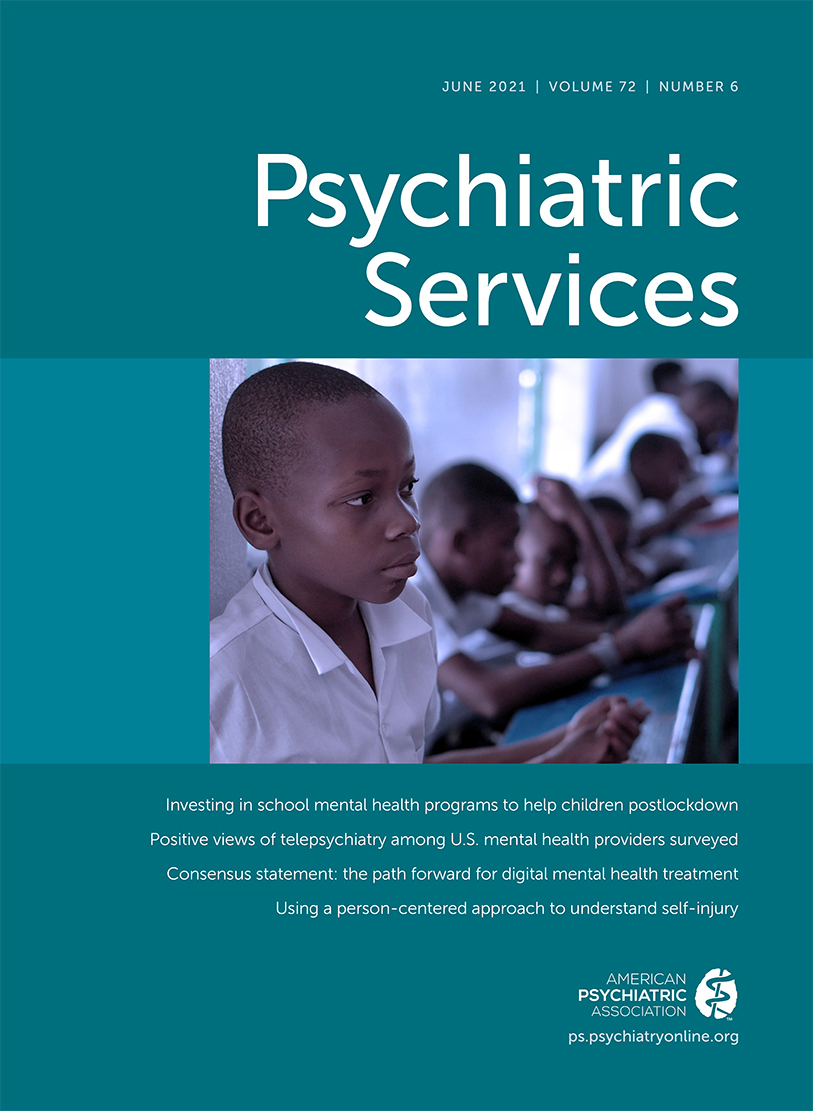Telehealth Acceptability and Feasibility Among People Served in a Community Behavioral Health System During the COVID-19 Pandemic
Abstract
Objective:
The authors examined the acceptability and feasibility of telehealth services shortly after their rapid introduction into a community behavioral health agency as part of the response to the COVID-19 pandemic.
Methods:
Individuals receiving services during May 8–18, 2020, from behavioral health programs that had introduced telehealth in March 2020, were invited to participate in a survey regarding their perceptions of the telehealth services. Ordinal logistic regressions were used to test for differences in survey responses in three ways: between program types, between the 2020 sample and a 2018 sample, and between individuals reported by staff to be distressed or not distressed by the COVID-19 pandemic.
Results:
Of 1,482 survey respondents, >80% reported that their ability to connect to staff, receive support, and get an appointment was at least as great as before the pandemic. Among 80% of respondents indicating interest in continuing remote services after the pandemic ended, 83% preferred a mix of remote and face-to-face services. From February 2020 to April 2020, total service utilization remained stable for treatment, outreach, and housing programs. In addition, mental health–related hospital utilization did not increase.
Conclusions:
The findings of this study suggest that telehealth, including telephone-based services, is an acceptable and even preferred service delivery mode for clients with severe mental illness. Continued investigation into the optimal dosing of face-to-face versus remote services in various settings is needed to inform service practice during and after the COVID-19 pandemic.



